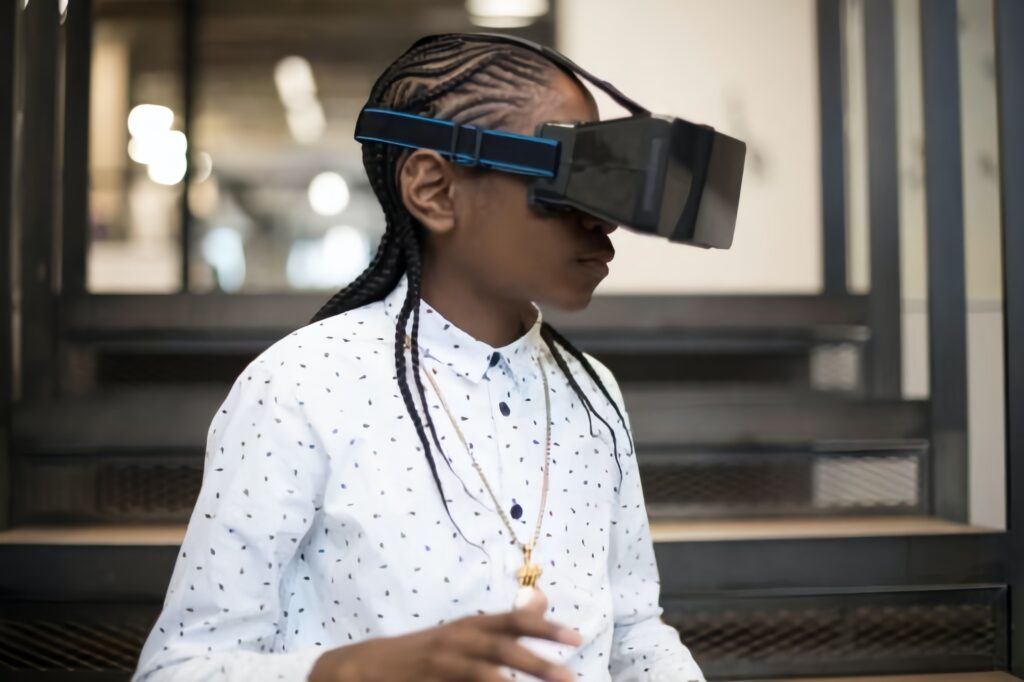A New Frontier for Us: ‘Metaversification’
By definition, the metaverse represents a “virtual-reality space in which users can interact with a computer-generated environment and other users”. While the metaverse has been around for many years in the form of computer games and simulation worlds, it has continued to grow at a slow, gradual pace. With Facebook’s recent public announcement in October 2021 to invest billions into metaverse technology, this all changed. Many tech companies and internet service providers are expanding their efforts in this new frontier.
What can we expect from this new metaverse reality? The most likely outcome will be computer-generated worlds that allow a person to put on a headset and enter three-dimensional virtual environments. Each of us will become avatars of our own selection – people, animals, comic figures, monsters, and the like. At first, we expect that these characters and environments will be simple and unsophisticated. But in time, these worlds will become more and more complicated and life-like as more people join. The metaverse will also bring together elements such as digital currency, marketplace/digital commerce, gaming, digital assets, entertainment and events, online shopping, workplaces, and social media.
One good example of an existing metaverse is Second Life. This virtual world, which has been around since 2003, allows people to create an identity, meet people, buy land and build their own environment or purchase an existing one. People who enter these worlds sometimes find it hard to escape. As one user stated, “I literally created the life I wish I had and now I’m addicted.” Over the weekend, I read an article that stated that by 2025, each of us will spend up to one hour a day in this new reality. Wow, this is an amazing prediction.
As the metaverse grows and expands, the non-government organisation (NGO) world needs to be involved in this process. This will ensure that this new reality doesn’t go off in a direction that ignores morals, ethics and human rights. In addition, the metaverse could offer a good place to allow NGOs to get their messages across to the people who will frequent these virtual worlds.

For this reason, the Mekong Club is already exploring a role we can play in the metaverse development process. This includes reaching out to Facebook, Google, and other major development players to offer our advice and guidance. With ESG being such an important, emerging priority for measuring what companies can and should do in relation to the planet, communities and workforces, we feel the same values should be included in the development of this new kind of reality. There are a number of different activities we would like to explore, including:
- Recommendations: The Mekong Club is seeking to acquire a seat at the table as this new phenomenon unfolds to help offer advice and guidance on how to include human rights values and other components related to addressing racism, discrimination, bullying, and sexism. Some of these elements have already been found in existing metaverse environments.
- Modern Slavery Prevention: Modern slavery recruitment has been found on a number of social networking platforms. For example, vulnerable groups are targeted by false promises of work or groomed into exploitative situations via online messaging platforms. In some situations, people are encouraged to send and share explicit material that is then used to blackmail and exploit them further. The Mekong Club will offer suggestions on how to avoid the metaverse allowing this to happen.
- Virtual Reality Film Tours: Virtual reality (VR) represents “a three-dimensional, simulated environment that is generated by computer technology” and it focuses on “an experiential interface rather than observational”. Research has informed us that the best way to learn is to experience a situation first-hand. The benefit of learning from VR is that it offers the viewer an opportunity to experience the emotional outcome of a sensitive issue. This allows the person to internalise on both an intellectual and emotional level. The Mekong Club has used VR tours in the past to sensitise people on sex trafficking and forced labour. We are in the process of acquiring more content related to this technology.
- Metaverse Workshops and Events: We will explore how we can use the metaverse to offer workshops and talks to raise much-needed awareness on the topic of modern slavery.
- Virtual Office: We are exploring the idea of having a metaverse office that would allow us to reach people in these worlds. The exact makeup and approach are presently under consideration.
The metaverse concept is exploding. The Mekong Club doesn’t know what this will mean for our charitable efforts, but we hope to go along for the ride, help influence the “metaversification process” and instil the “metaverse for good” concept. Where this path will take us is yet to be known.
If you are interested in this process, please let us know. We are always open to collaboration.
Author – Matthew Friedman
FAQ
-
What is the modern slavery risk in the metaverse?
-
What are the modern slavery trends now?
-
How can we hold modern-day slavery training on the metaverse?
-
How can I learn more about anti-human trafficking and the metaverse?
-
Is the metaverse subject to the Modern Slavery Act?

